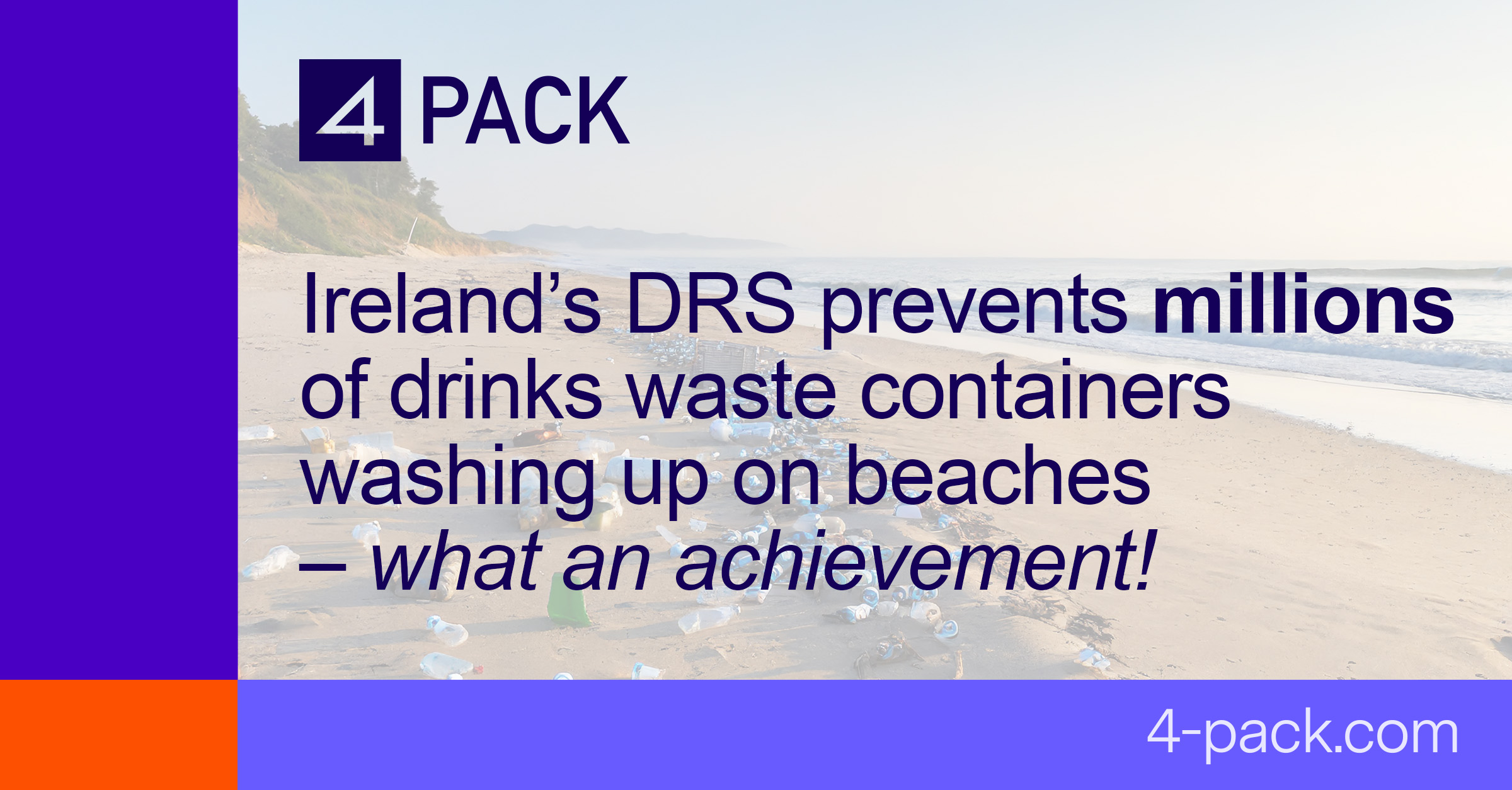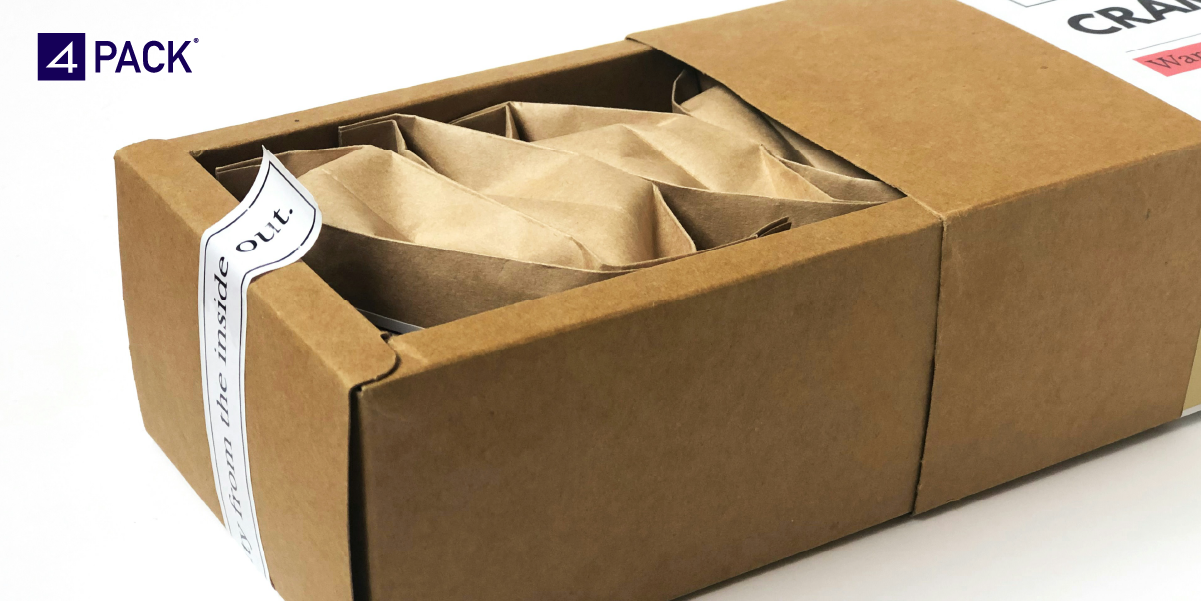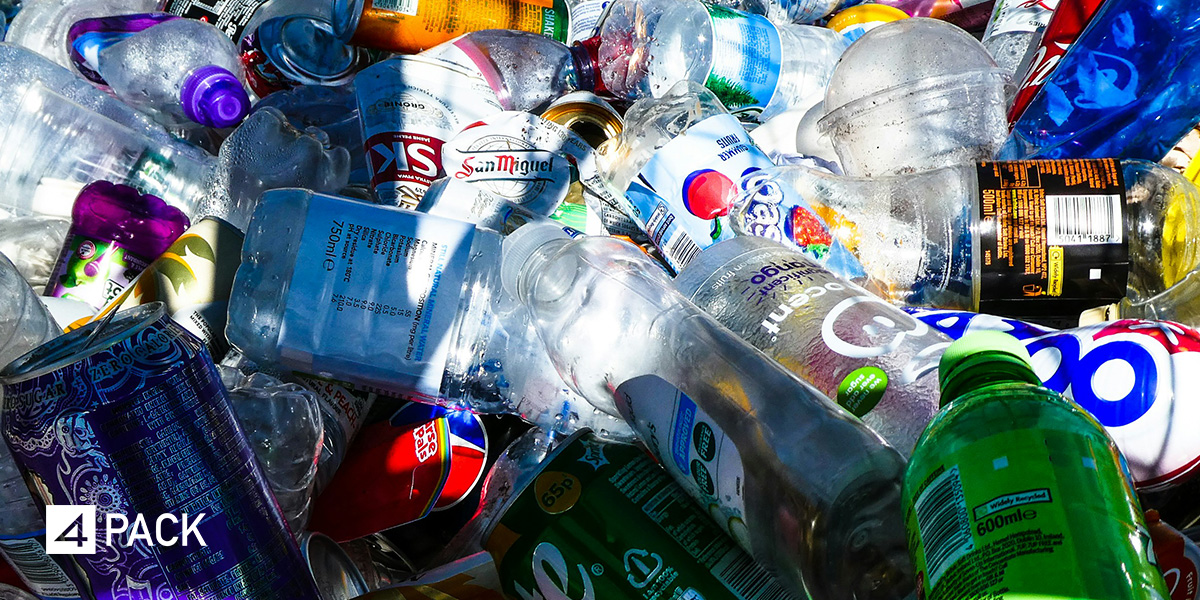Back in April 2020, at the very beginning of what was to become an unprecedented pandemic, we predicted that the 2020’s could disrupt the way food and non-food products are marketed, and that this would allow consumers to select products based on their environmental impact.
We had no idea that what lay ahead would essentially turn the world on its head; people being confined to their own homes, exercising in the living room or garden, giving more thought to the state of our planet and being more mindful of the origin, manufacturing, and packaging of the food we eat became the ‘new normal’.
4PACK predictions for this decade included:
- Continuation of the current transition to sustainable packaging materials and new packaging solutions developed with both performance and environmental impact considerations in mind
- New labelling guidance for food and non-food product packaging that allows consumers to compare and select products based on their environmental impact
- Meteoric rise in digitally-enabled labelling – supporting new sustainable retail and product consumption initiatives and data driven stories on ingredient provenance
Introduction of the Plastic Packaging Tax (PPT)
A new tax on plastic packaging, the Plastic Packaging Tax (PPT) was introduced in the UK on 1st April 2022, created with the aim of incentivising the use of recycled material in the production of plastic packaging.
The primary legislation states that the tax will apply at a rate of £200/tonne on plastic packaging with less than 30% recycled plastic manufactured or imported into the UK (including packaging on goods which are imported).
Due to the broad scope of this new tax, a very wide range of businesses are affected, including:
- Packaging manufacturing
- Industrial manufacturing
- Consumer goods
- Online retail
- Pharmaceutical
- Chemical
- Food and drink
- Cosmetics
- Oil
It’s important to note that the registration for PPT will be required even if a business meets the 30% recycled content threshold and does not need to pay any tax. Impacted businesses therefore now need to have met their compliance obligations, and it seems that most already have.
4PACK and the Plastic Packaging Tax
4PACK are software providers equipped to work with the PPT, ensuring that the journey towards sustainability is as easy and smooth as possible.
As a business we can:
- Help you to centralise and control your data relating to sustainability
- Speed up reporting and preparation for packaging levies
- Help you to embed sustainability in your development process
- Aid you in understanding and working with the environmental impacts that are disrupting CPG packaging and labelling
Ultimately, there’s no avoiding the PPT – more sustainable packaging is a must, particularly for businesses who want to avoid having to pay a hefty sum. Taking the first steps towards more sustainable packaging can be overwhelming, but this is where we can help.
As a business, we offer solutions with instant results, including:
- A 90% cost reduction
- A 50% faster time to market
- 80% faster packaging updates
The bottom line is that avoiding the PPT as much as possible is key to any business, and we’re here to make the journey towards more sustainable packaging easier.
If your business is on the journey towards meeting consumer needs and embracing sustainability, get in touch for a demo and see how we can help you.
How did we get here?
2020 was a turning point: amidst the chaos of a world consumed by covid-19, one thing became obvious: the current patterns of intensive agriculture, trade, and consumption are in no way sustainable. In addition to the increasingly-clear impact this has on the planet, it could also be affecting the health of the wider population.
Reports in March 2022 showed that over 80% of the people tested were found to have microplastics in their blood – while the true impact on health is as yet unknown, researchers know that microplastics cause damage to human cells in the laboratory – and it’s thought that these microplastics in the bloodstream could also lodge in organs.
Consumers are now more aware than ever that most packaging, particularly plastic, can’t really be thrown away, and that more often than not, it ends up in the Great Pacific Garbage Patch – and we’re quickly approaching the point where we have more plastic in the ocean than fish. The fear is growing, and this is the ultimate motivator for change. Now, every business should be working on the basis that every packaged item sold, can eventually be returned – whether this is through sharing, repairing, reusing or recycling.
In fact, in the last 5 years alone, 85% of people around the world have already made lifestyle changes in the name of sustainability – and the implications of this global shift in attitude is a prime opportunity for businesses to meet consumer demand, remain profitable, and protect the ecosystem from further destruction.
This all means that it’s no surprise that any business requiring packaging design and creation is understandably keen to make the right sustainability choices.
Here at 4PACK we live and breathe packaging design so if you have any questions at all, please do contact us and we’ll be happy to help.


